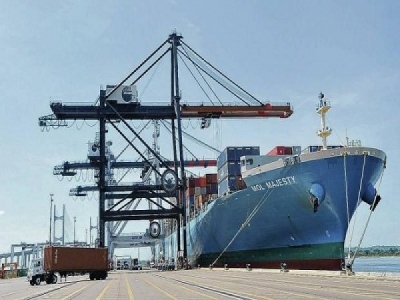
Posted on January 8, 2018
By David Bauerlein, jacksonville.com
A decision on St. Johns Riverkeeper’s eleventh-hour attempt to prevent dredging the ship channel could go down to the wire as a judge said Thursday she will rule “promptly” but cannot guarantee it will come before the company hired to do the dredge arrives later this month with its crews and equipment.
U.S. District Judge Marcia Howard heard four hours of arguments on the Riverkeeper’s request for an injunction that would stop the U.S. Army Corps of Engineers from beginning the first 3-mile phase of deepening the river.
The Corps awarded the dredging contract to the Dutra Group in September. Dutra, which is wrapping up work at Port Canaveral, could move its equipment to Jacksonville as soon as Jan. 15 and no later than Jan. 29, said U.S. Department of Justice attorney Stephen Finn.
Finn said that once the company has its equipment in place, the Corps will start incurring costs for the dredge even if no work is being done.
Howard said that that prior to Thursday’s hearing, she had expected to be able to issue a ruling by Jan. 15, but that might not be the case after hearing the arguments unfold in the courtroom.
“As the issues morphed in this, I’m far less confident I will have a decision by then,” Howard said.
She said the Riverkeeper has a stake in carrying out its mission of advocating for the health of the St. Johns River, while the Corps and the Jacksonville Port Authority have been investing time and money for more than a decade to get the project to where it’s on the verge of beginning.
“I’m not going to be hurried,” she said. “This is too important to both sides.”
The Riverkeeper filed a lawsuit last April contending the Corps failed to fully account for the environmental harm of dredging and also fell short at proving the economic justification for the expensive project. It would cost $684 million to dredge 13 miles of the river to a depth of 47 feet from its current 40-foot depth.
Howard won’t rule until later this year on that lawsuit, so the Riverkeeper sought to force the issue sooner by filing in December for an injunction, which has a higher legal bar to meet.
The Riverkeeper contends that while the Corps did an environmental impact statement on the environmental and economic aspects of deepening 13 miles, the Corps and JaxPort have decided to shorten the scope to 11 miles.
An 11-mile deepening would reduce the cost of dredging to $484 million, but it would stop short of the international shipping terminal operated by TraPac on the west side of the Dames Point bridge.
The Riverkeeper’s suit says the economic justification for deepening the river depends on TraPac moving more cargo, so it’s a major change to shorten the dredge before reaching TraPac.
“They’re going to get to 11 miles and they’re going to stop,” said Kenneth Wright, attorney for the Riverkeeper. He said a new environmental impact statement would show whether the project has enough economic benefit to outweigh the environmental harm of dredging.
The Corps and JaxPort, which is an intervenor in the lawsuit, say they have not decided to shorten the dredge to 11 miles. JaxPort’s attorney said the port authority’s focus is on an 11-mile deepening project but JaxPort has not shut the door on doing 13 miles of river.
JaxPort has been in talks with TraPac about the company moving its operation to Blount Island on the east side of the Dames Point bridge where the 11-mile deepening would end.
Howard questioned whether the deepening could remain on the books as a 13-mile project for years until 11 miles were finished, and then the deepening could stop at that point.
The Riverkeeper also contends an injunction is warranted because the widespread flooding during Hurricane Irma is new information that calls into question the Corps’ assessment that even though deepening the river will cause an increase in storm surge in the St. Johns River, that increase in storm surge will not cause flooding.
Finn said the Corps determined there is no need to revisit that issue because the Corps used a model that factored in the St. Johns River rising even higher than it did during Irma.
“The Corps has evaluated the worst-case scenario,” Finn said. “Irma was not the worst-case scenario.”
Wright said Irma showed that increases in storm surge result in flooding, and the Corps must analyze how many more homes and businesses will get flooded as a result of additional storm surge from a deeper river.
“That’s what is missing,” Wright said of the Corps’ analysis.
Source: jacksonville.com





